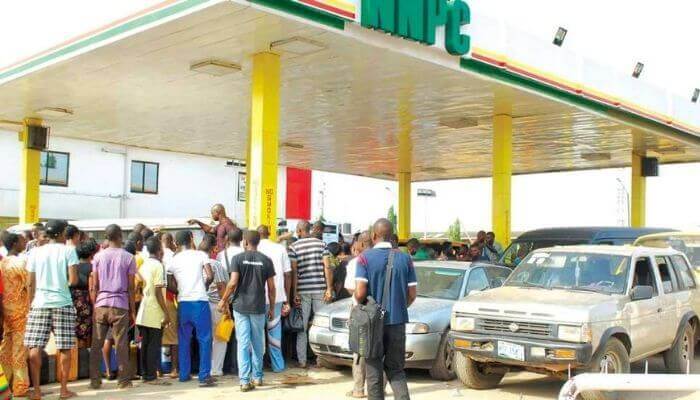
The Nigerian House of Representatives has called on the Federal Government to reverse the recent increases in the prices of petrol and cooking gas, citing the severe economic hardship being felt by citizens across the country.
The resolution was reached following the adoption of a motion of urgent public importance raised by Minority Leader Kingsley Chinda and co-sponsored by 100 other members during the plenary session on Wednesday, October 16, 2024.
The motion, titled “Urgent Need to Suspend the Increased Cost of Petrol and Cooking Gas in the Country and Provide a Stop-gap,” highlighted the escalating financial burden that ordinary Nigerians have faced in recent months due to rising fuel and gas prices.
The cost of Premium Motor Spirit (PMS), also known as petrol, surged to ₦1,030 per liter, causing widespread increases in transportation costs and contributing to inflationary pressures in major cities.
Fuel Price Hikes and Economic Strain
Hon. Chinda, a member of the Peoples Democratic Party, expressed concern about the sharp rise in prices, linking it to the removal of fuel subsidies, global oil price fluctuations, and the continued depreciation of the naira. He warned that the current situation is unsustainable for many Nigerians.
“The removal of fuel subsidies, coupled with global oil price volatility and naira depreciation, has contributed significantly to the rising cost of petrol at the pump and cooking gas for households,” Chinda said during the session.
He further noted that the increasing prices of fuel and gas are driving up the costs of transportation, food, healthcare, and other essential goods and services, exacerbating inflation and pushing more families into financial distress.
“Businesses, particularly small and medium-sized enterprises, are struggling to manage their operational costs due to increased fuel prices, threatening economic stability and job security,” Chinda added.
Legislative Call for Immediate Action
The House resolution called on President Bola Tinubu’s administration to urgently address the price hikes, warning that the continued escalation could lead to an economic crisis with long-term effects on poverty, social unrest, and even crime rates.
House Minority Whip Ali Isa condemned the recurring increases, stating, “The people are suffering because of the increase in fuel prices.
The government should allow the people to breathe and should not remove the cylinder that gives Nigerians a little oxygen.”
The representative for Plateau State’s Kanke/Pakshin/Kanam Federal Constituency, Yusuf Gagdi, echoed these concerns, emphasizing the urgency of improving Nigerians’ welfare.
Impact on Livelihoods and Businesses
The rise in fuel prices has caused a ripple effect throughout the economy.
Deputy Minority Whip George Ozodinobi pointed out that the increase has effectively negated the impact of the ₦70,000 new minimum wage, as the cost of goods and services has risen dramatically.
He also emphasised the difficulties farmers face in transporting produce to markets, which has further inflated food prices.
“The increase in prices has rendered the ₦70,000 minimum wage meaningless, given the rise in the cost of goods and services,” Ozodinobi said.
Strategic Recommendations
The House of Representatives also called on relevant agencies, including the Nigerian National Petroleum Company Limited (NNPC) and the Ministry of Petroleum Resources, to expedite repairs on domestic refineries to reduce Nigeria’s dependence on imported refined petroleum products.
Additionally, lawmakers urged the Central Bank of Nigeria (CBN) to implement monetary policies aimed at mitigating the adverse effects of rising fuel prices on inflation, particularly concerning essential goods and services.
The House further advocated for exploring alternative energy sources to diversify Nigeria’s energy mix and promote renewable energy solutions that are more sustainable and affordable in the long term.
State governments were also encouraged to adopt policies, such as tax waivers or levies, to alleviate the financial burden on citizens.
As Nigeria continues to grapple with economic challenges, the call from the House of Representatives reflects mounting pressure on the Tinubu-led government to implement measures that will ease the hardship being experienced by millions of Nigerians.
SOURCE: The Trent


